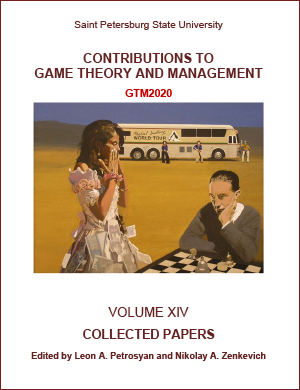Information Collecting and Dissemination in the Network of Taxpayers: Bayesian Approach
DOI:
https://doi.org/10.21638/11701/spbu31.2021.18Abstract
The current research is based on the assumption that the result of tax inspections is not only collection of taxes and fines. The information about audited taxpayers is also collected and helps to renew a priori knowledge of each agent's evasion propensity and obtain new a posteriori estimate of this propensity. In the beginning of the following tax period the fiscal authority can correct auditing strategy using updated information on every taxpayer. Each inspection is considered as a repeated game, in which the choice of agents to audit is associated with their revealed tendency to evade. Taxpayers also renew the information on the number of inspected neighbors using their social connections, represented by networks of various configurations, and estimate the probability of auditing before the next tax period. Thus, the application of the Bayesian approach to the process of collecting and disseminating information in the network of taxpayers allows to optimize the audit scheme, reducing unnecessary expenses of tax authority and eventually increasing net tax revenue. To illustrate the application of the approach described above to the indicated problem, numerical simulation and scenario analysis were carried out.
Keywords:
tax control, tax evasions, risk propensity, structured network, a posteriori information, Bayesian approach
Downloads
References
Downloads
Published
How to Cite
Issue
Section
License
Articles of "Contributions to Game Theory and Management" are open access distributed under the terms of the License Agreement with Saint Petersburg State University, which permits to the authors unrestricted distribution and self-archiving free of charge.




